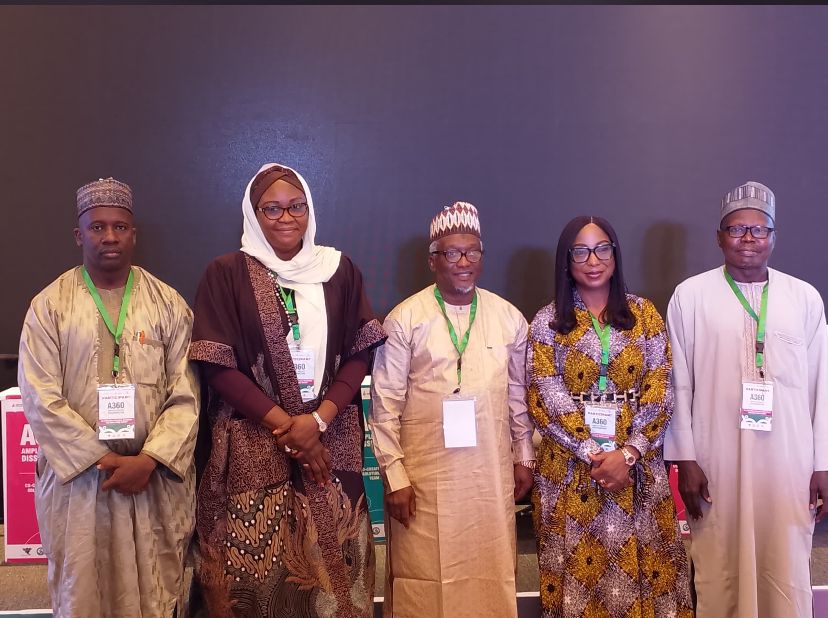By Folasade Akpan
Stakeholders in Nigeria’s health and development sector say the institutionalisation and scale-up of the Adolescent 360 (A360) Amplify project has greatly improved adolescent sexual and reproductive health outcomes in participating states.
They made this known at a dissemination meeting on the project in Abuja.
It was implemented by the Society for Family Health (SFH) and partners, and later adopted into government systems following documented successes.
Launched in 2020, the A360 project was designed to provide adolescent girls with access to sexual and reproductive health information, youth-friendly services and economic empowerment opportunities.
The programme was implemented in Kano, Jigawa, Kaduna and Nasarawa States using a human-centred design approach that engaged governments, communities and young people to improve uptake of family planning and maternal health services.
Dr Aisha Sadiq, Permanent Secretary, Kaduna State Ministry of Health, said institutionalising A360 had delivered measurable improvements in adolescent health indicators and community wellbeing.
She said Kaduna currently provides A360 youth-friendly services in 623 Primary Health Care (PHC) centres.
The Matasan Mata Arewa (MMA) initiative, she added, had reached 75 communities and empowered more than 15,000 girls with entrepreneurship skills and seed capital.
According to her, more than 60,000 girls have accessed contraceptives through the programme, with a reduction in discontinuation rates as more young women sustain use and transition to maternal and child health services.
“These changes have shown a marked reduction in maternal mortality among those communities. It has also reduced negative neonatal outcomes,” she said.
Sadiq recounted an elderly woman’s remarks from a programme community, calling them a strong reflection of the project’s success.
“These girls have spent their whole lives believing they will remain tolerable liabilities to the husbands they marry, but now they are realising the value of becoming appreciated assets,” she quoted.
Sadiq added that Kaduna’s 16 per cent health budget allocation and the integration of A360 activities into the state’s 2025 Annual Operational Plan demonstrated sustained political commitment.
Also speaking, Dr Omokhudu Idogho, Managing Director, SFH, said the four implementing states had successfully embedded A360 approaches into government systems, community structures and routine health practices.
He was represented by Dr Kenechukwu Erichalo, Deputy Managing Director, Project Delivery.
Idogho said the project had reached more than one million adolescent girls with family planning services and engaged over 500,000 others with comprehensive sexuality education messaging.
“We recorded more than 50,000 antenatal care visits, ensuring that girls received skilled care that saved lives, and supported over half a million girls to learn income-generating skills,” he said.
He said A360 pioneered the MMA and Niger Girls models, demonstrating that culturally sensitive, human-centred programmes can succeed even in conservative communities.
“Our most significant achievement is institutionalisation. Today, all 1,750 A360-supported facilities are fully government-led,” he added.
Mrs Roselyn Odeh, A360 Project Lead, said the initiative was developed in response to poor adolescent health indices in the country.
She said the programme ensured respectful, youth-friendly services at PHCs and supported school reintegration and entrepreneurship for girls.
She said the decision to scale the programme in northern states was based on data.
“When you look at maternal mortality among young people, you know the section of the country it is coming from. Data drove our decisions in alignment with government priorities,” she said.
Odeh identified challenges including weak PHC infrastructure, funding gaps, commodity shortages and the need to engage husbands in conservative communities.
“But creatively, we worked with governments to mobilise domestic funding through health revolving funds and the Basic Healthcare Provision Fund,” she said.
Mr Sagir Musa, Commissioner for Youth, Jigawa State, assured of continued commitment from implementing states to sustain and expand the project’s gains.
“This project may be nearing closure, but for us, it has just begun. We have gone beyond its life cycle to embed its approaches in the things we do,” he said.
The dissemination meeting brought together policymakers, community leaders, development partners and beneficiaries to review lessons learned and outline future priorities for scaling adolescent health interventions nationwide. (NAN)(www.nannews.ng)
Edited by Tosin Kolade











